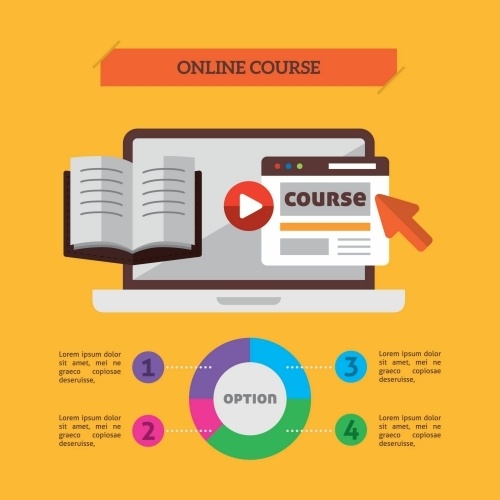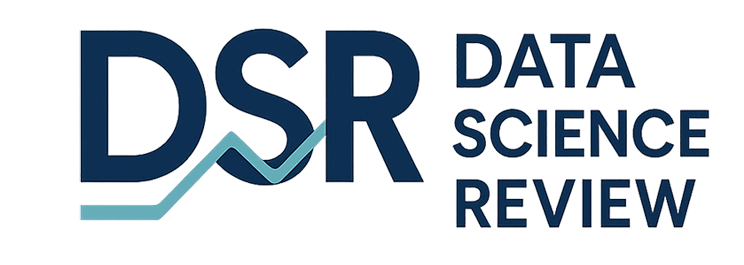Finding courses is a great way to get started in a data science career. But, it's only the first step. To truly grasp the concepts you learn, you need to figure out how to practice your data science skill. The best place to practice is with a job in data science, however, that requires experience to get one.
While you do need to practice your skills, you first need to have a solid foundation of skills. As you learn you should practice. Don't try to learn everything first and then apply the skills. There is no reason to put off practicing while learning. Here are resources that can help you know what to learn:
https://www.kdnuggets.com/2018/05/simplilearn-9-must-have-skills-data-scientist.html
https://www.quanthub.com/top-data-science-skills-to-be-legendary/

Be forewarned: if you wait to master all of the skills from the resources above, you'll be about 90 years' of age when you are ready to look for a job. This is why it's better to focus on the foundations and use the skills as soon as you learn them. Companies are starting (slowly) to realize that you'd have to be superhuman to possess all of the skills in a short amount of time. Therefore, if you can check off the right skills, but not all of them on the list, you can still find good opportunities.
Will a Career in Data Science Last?
It's hard to deny that there is at least some hype surrounding the data science field. I would go so far as to say it's more than some. That could be a problem when you commit resources to a field that may not be around in five years. The truth is the field will be around, it may not be the same as it is now. The roles will be more concrete and the hype will have subsided. Several of the tasks being taught in this hype phase will be automated and transparent for the end user. However, these end users won't know how prepare the data (clean) and they'll need qualified people to interpret the data. They'll also need people who can present the data to management.

https://towardsdatascience.com/why-data-science-careers-are-here-to-stay-43b08995cf2f
https://data36.com/learning-data-science/
https://www.dataversity.net/data-science-trends-in-2019/
What this does mean however, is you should have a valid reason to get into data science. Don't do it for the money. As the hype wears away, the salaries may level off. The field will still pay relatively well. But, when you listen to all the stories about how data science jobs pay $200,000 salaries, you'll become disenchanted quickly. Even if you could obtain such a salary for the job, you had better be the best in your field. Companies don't pay top salaries for people who are mediocre. Do this for the love of the field and you'll be compensated appropriately.
Do You Need a Master's Degree?

People ask this question frequently. If you have the financial resources and ability to get a master's degree in data science or some form of data analytics advanced degree, it will help you immensely. However, there are ways to break into the data science field without such a degree. It takes more work, but it is possible and plenty of people are doing it.
https://datasciencereview.com/do-you-need-a-masters-degree-in-data-science
Getting the Practice You Need with Data Science
Now that the housekeeping items are out of the way, we can get to the meat of this article, i.e., how to practice your skills. My suggestion is to become well-rounded in applications of data science, including projects you create for yourself. Don't underestimate doing projects for yourself. When you can describe the process of how you analyzed these projects, this will go a long way in a data science interview. Find data online about subjects you are interested in and try out the techniques you learn in your coursework or seminars. If you need some help finding data sources, I have included a resource my website that may help:
https://datasciencereview.com/data-sources
Next, make sure you choose an area to study that you are familiar with and hopefully are an authority. While it's great to learn new topics, when you are trying to learn data science along with the subject matter material, it will overwhelm you. You'll lose interest in both the subject matter and data science. When you concentrate on subjects you have expertise in, you don't have to spend time learning that subject.
This isn't to say that you won' learn something new in your field when you apply data science. The point is that you don't want to concentrate on topics where you spend an inordinate amount of time learning the fundamentals. You'll be doing enough of that with the data science concepts.
Also, you'll be likely to understand which data sources are valid when you have a thorough understanding of your field. You'll know when data is out of place or incorrect. For a field unfamiliar to you, how could you possibly know when something is out of place? Sticking to your expertise will prevent this from happening.
Another important benefit of sticking with what you know is it will be easier to find a data science job in that area. Part of the skill set of a data scientist is domain expertise or subject matter expertise. You must know the business to know what data points are important and which are noise. You can't get the from a beginner's perspective no matter how hard you try.
Resources to Help Get Practice
Contests are a great way to build your data science chops. Two leaders in this for data science are Kaggle and Analytics Vidhya. Both resources are free and both offer learning resources (again for free). Contestants can win money, too.
Public data sets of varying types from Springboard which pan several categories. They are also clean data sets which means you won't waste time on them. Do keep in mind that cleaning is a major task in data science and should never be overlooked. Unfortunately, this is an area that data scientists find least enjoyable.

The following describes the process involved with starting projects in data science. KDNuggets is an extensive resource to help people learn about several aspects of the field.
I already mention this website but it's bears repeating as I found some example projects that you can try with it. The best part about this is you can download the data sets for each project and view a tutorial on how to process the data. It also starts with beginner-level projects and moves up to advanced. Definitely a must try resource!
Volunteer and Internships. These are some of the quickest ways to hit the ground running in data science. There are plenty of organizations that could use your data analysis skills to help them gain more from their initiatives. When you have organizations that accept several volunteers, you'll likely find experienced people who can help further your skills.

The following are a few (by no means complete) list of organizations that can help you get started:
https://www.datakind.org/do-good-with-data
https://www.datafordemocracy.org/
http://methoddatascience.com/applywithus.html
If you aren't accepted to these organizations, don't despair. You can look for small companies or charities that haven't been approached for data analysis work. When you contact these smaller companies, let them know you can help them by providing insight from their data. This is usually an easy sell. Sometimes, these situations can turn into part-time or even full-time roles with pay. The experience is worth as much as any pay you may receive, but getting paid wouldn't be the worst thing to happen 🙂
The following is a great article on the steps involved with building a data science project. While it may be somewhat simplistic as it cannot cover every possible scenario, it is useful to apply steps to any process. If nothing else, it can help you recognize the gaps in your learning. For instance, if you don't understand a step given in the article, you can find training on that step before you continue. Then, for future data science projects, you'll be ready. Here is the link and you should bookmark it:
https://medium.freecodecamp.org/how-to-build-a-data-science-project-from-scratch-dc4f096a62a1
Social Media

Search on social media for groups that may provide projects and are looking for people who can help. LinkedIn has several groups dedicated to data science. Join these groups and ask around for ideas for projects that are in need of help. Reddit has a subreddit dedicated to data science, which is appropriately names /r/datascience. It can be a bit overwhelming as it contains everything under the sun as it relates to data science. But, it's still a worthy resource just the same.
Online Courses
Companies that teach data science are catching on that practical applications of data science techniques matter. They are adding hands-on projects for people to test their skills. SuperDataScience.com has practical applications that you can try to help improve your skills.
These training programs do cost money, but they are worth subscribing for a month or so for the training. Once you learn the benefits of these programs you will likely continue with your subscription. The training remains available to you for as long as you are a paid subscriber, so you can revisit modules that you struggle with.

If you decide to sign up to these services, do take advantage of the practical applications. They exist to help you get over that intimidation of trying to solve projects. Once you do, the process becomes easier such when you get a position at a company, you'll have a good start. These projects won't be enough to cover every scenario you'll find when you take on a role as a data scientist, but you have to get your start somewhere.
I have written a review on SuperDataScience.com.
Next Steps...
At this point, you have enough here to start practicing your data science skills. Don't be intimidated by the process. Start playing around with data sets and see what you may discover. When you get stuck, review your materials that you used to learn the skills. Hit up forums and blogs and ask many questions. The key is to continue trying out problems and making discoveries. That will give you an advantage when you go on interviews for a data science job.

